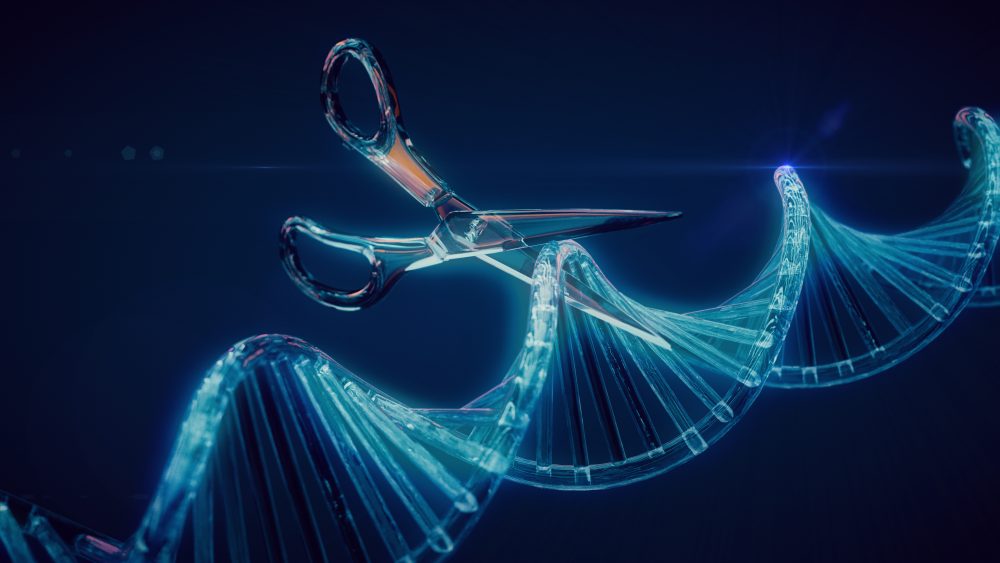


Richard Weikart: Medicine’s Descent From Healing to Killing

Frightening Abuses of Science: A Conversation with Wesley J. Smith

Wesley J. Smith Unpacks Nature Article about Alarming Gene Editing
On today’s ID the Future, bioethicist Wesley J. Smith explores a recent article in the journal Nature, “The Alarming Rise of Complex Genetic Testing in Human Embryo Selection.” As alarming as that title sounds, Smith says the reality is even worse than the Nature article suggests. Using the breakthrough technology known as CRISPR, scientists are not only altering the genes of a given creature, including humans, but are even altering the creature’s germline. This threatens to permanently alter a species, Smith explains, including the human species. There’s the question of whether we have the right play god in this way, of course. There’s also the practical issue of scientists not really knowing what they are doing yet. A gene identified Read More ›

Wesley J. Smith Sounds the Alarm on Germline Genetic Editing
On today’s ID the Future, bioethicist Wesley J. Smith makes the case for passionate opposition to, and stricter bioethical regulations against germline genetic engineering that changes not only the genetics of the subject but also of all that subject’s descendants. He and episode host Casey Luskin discuss germline genetic editing in China, the brouhaha that ensued when the experimental work by He Jiankui came to light, and why Smith is convinced that China’s disapproving response is less than it appears on the surface. He’s convinced, he explains, that the Chinese government wasn’t upset that the Chinese scientist conducted the experiment. They surely knew about his work and allowed it, Smith says. Rather, they and the scientific establishment internationally were upset Read More ›

Richard Weikart on Scientific Racism and the War on Humanity
Today’s ID the Future again spotlights The Comprehensive Guide to Science and Faith. Historian Richard Weikart and host Casey Luskin discuss Weikart’s contribution to the new anthology, his essay “How Evil Has Been Done in the Name of Science.” As Weikart explains, over the past century and a half, science has been misused to fuel racist policies and undermine human rights. Darwinian ideas helped lay the groundwork for Nazi ideology in Germany. And we shouldn’t imagine the problem was restricted to Nazi Germany. Scientific racism also reared its head in the United States, including in the long-running and infamous Tuskegee syphilis experiment. More broadly, a marriage of scientism and evolutionary thinking continues to undermine the idea of inherent human worth Read More ›

No, Scientists Should Not Rule
On this new episode of ID the Future, The Price of Panic co-author and philosopher Jay Richards hosts bioethicist Wesley J. Smith to discuss a Tweet from Physics-Astronomy.org. The Tweet read, “Imagine a world ruled by scientists, not politicians.” The drift of the Tweet was, wouldn’t rule by scientists be wonderful! Smith immediately threw up a great big “Don’t go there” sign at the Epoch Times. As Smith and Richards emphasize, such an approach to governance would be disastrous, and would actually be anti-science. It would tend to corrupt the practice of science, thrust scientific specialists into positions calling for generalist skills, and further the arrogant mistake that is scientism—the view not only that nature is all there is, but Read More ›

Let’s Champion Human Exceptionalism, Pt. 3
On this classic ID the Future, hear more from bioethicist Wesley J. Smith about The War on Humans. In this episode of the series, hear about the legal movement to establish legal rights for animals, and even plants. Smith examines the meaning of the term “personhood” and its implications for human rights.
Canada: Physician-Assisted Suicide Devolves to Physicians Being Forced to Commit Homicide
On this episode of ID the Future, bioethicist Wesley J. Smith exposes the horror of “Medically Assistance in Dying” (MAi/D) in Canada. Worse than physician-assisted suicide, this is medical homicide. Hospitals are even advertising it. Doctors in at least one province have no choice but to be complicit in these killings, or else leave their specialties or even quit medicine altogether. Will MAiD come to America, too?
Wesley J. Smith on Human Cloning Hidden under Jargon
On this episode of ID the Future, bioethicist Wesley J. Smith speaks with host Dean Abbott about the arrival of human cloning. While significant barriers remain that will slow its development as far as human-cloned babies and adults, ethical constraints still depend only on scientists’ restraint — a “thin reed to stand on.” Human cloning research is underway even now, under cover of scientific jargon to obscure what’s going on, Smith says. Are we ready for this? Please consider donating to support the IDTF Podcast.